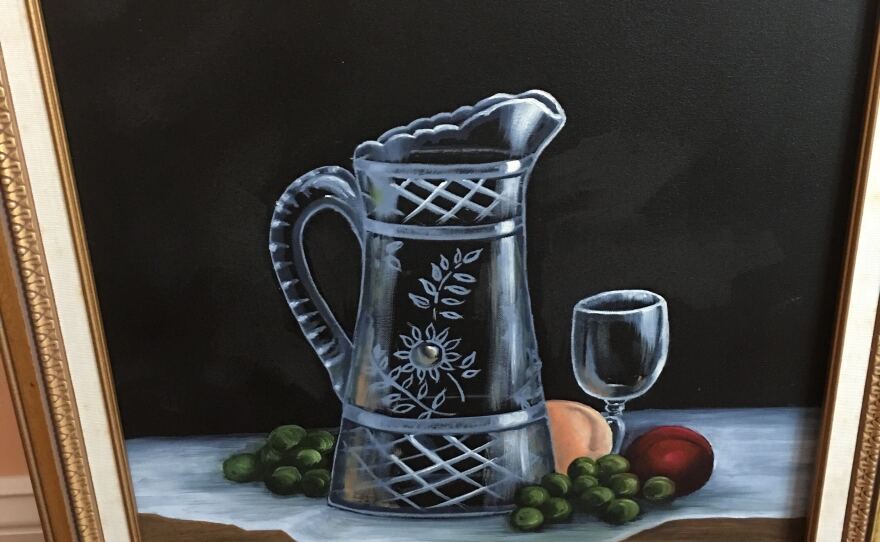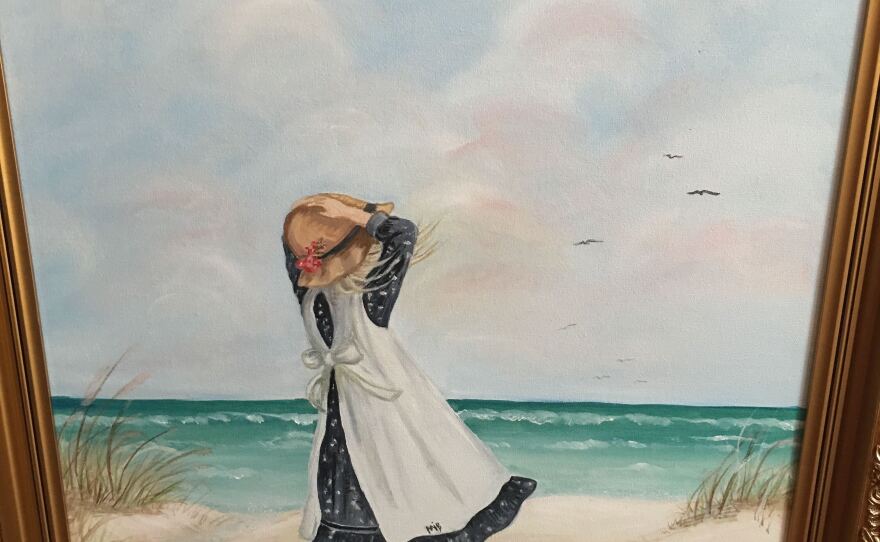Two people have constantly been on 57-year-old Tammy Commisso's mind since the pandemic hit: her mom and dad, both in nursing homes that went into lockdown in March.
Her dad at least is at a facility nearby. But her 90-year-old mom, Margaret, was living in a nursing home in Florida, where Commisso's brother lives. She had been receiving hospice care for the past year. And Commisso knew if her mother caught the coronavirus, she wouldn’t make it.
"She says she’s ready to go, and I’m finally at the point where I’m kind of ready to let her go, but I don’t want her to go during all this," Commisso told WFAE in April. "I would like for us all to be there. If she gets coronavirus, she’s definitely a goner."
In September, Commisso got the news she’d been bracing herself for: Margaret had tested positive for the coronavirus.

"I got a call from the director of nursing and I knew — she didn’t even have to tell me," Commisso said. "She said they were going to send her to another facility that takes positive patients."
This new facility did not know Margaret, and Commisso worried her mom would die alone. But then she got another call. Margaret was in such bad shape that she needed to go to the hospital. She had congestive heart failure, fluid in her lungs, her kidneys were failing and, of course, she had COVID-19. Commisso says the disease ravaged her mother's lungs and what strength she had left.
But there was one ray of light in all this darkness: Commisso was allowed inside the hospital to see her mom, which would not have been the case if Margaret was still in a nursing home. So she got in her car and made the 10-hour drive to Florida.

"When I first got to the hospital, I knew she knew it was me even though I was in full PPE and everybody looks the same," Commisso said. "But I saw her furrow her brow and tear up a couple of times when I was talking to her."
Commisso and her brother spent the next several days with their mom, taking shifts to stay by her side. The last night she spent with her mom, she did what she could to keep Margaret comfortable. That included giving her water through a small sponge.

"She was enjoying the water," Commisso said. "And I got her lip balm and said, ‘Here’s your lipstick. You always told me never leave your house without your lipstick on.' And I said, ‘I’m going to go to the hotel and sleep, but I’ll be back in the morning, OK?’ And she shook her head, and that freaked me out. It had been over 24 hours since we had really got any response from her. So, she knew I was leaving."
Not long after Tammy left, Margaret took her final breath. A nurse was by her side. Commisso says she knows her mom was waiting for her to leave so she could. It hadn’t been easy sitting helpless, watching her mother struggle to breathe for days on end.
"I guess it’s a pretty common thing," she said. "She didn’t want that to be my last memory, I guess."
There is some relief for Commisso in Margaret's passing. For one, she is no longer suffering. And her worst fear — that she wouldn’t get to see her mom and that she would die alone — did not come true. Commisso had spent a lot of time worrying about that.
"I think I already did a lot of grieving, and I was already angry a lot, and I think I’ve been through a lot of the process and it was a very traumatic event to go through but last Thursday, I was just like, 'She wouldn’t want me to be this upset forever,'" Commisso said. "She was a very faithful person and was ready to go and wanted to go and kind of look forward to it. I feel a lot better. At least I can talk about it now."
But it is difficult, she says when she sees people not taking the virus seriously. She says it’s been disappointing to watch President Trump minimize the danger of COVID-19.
"He can’t relate to the average middle-class American," Commisso said. "He always has the best of the best care, I'm sure, even prior to this. I hope his followers are cautious. They should not listen to someone that’s not a medical professional."
She says she has a newfound respect for the virus having seen firsthand its devastation: It’s not something to be taken lightly.

Now, Commisso's trying to focus on the many good years her mother had and all she accomplished. She was an artist. She worked. She was a mom. She loved the beach. She made Commisso’s dresses growing up. Margaret was an activist. Commisso will remember her mom as an advocate for women's rights who took voting seriously.
The next challenge will be breaking the news to her father. The couple lived apart in different states because of the specific care they each needed.
The other week Tammy was able to see her dad in person outside, but they only had 15 minutes together. That didn’t feel like the right time — or enough time — to break the news that his wife of 60 years had died.
During that visit, Commisso's father asked how Margaret was doing. And Commisso said she’s doing better. Which, is true: Commisso says her mother is no longer suffering.
In the months to come, Commisso says, she was told the facility may be open to more in-person visits that are longer — and actually inside her father’s residence. That will give them more privacy to have such a difficult conversation.
She says when that day comes, she’d like to bring him food from the outside. She imagines them sitting down, sharing a meal and spending time together.
When they can hold space for each other, when they aren't rushed, then she’ll tell him.
Sign up here for The Frequency, WFAE’s daily email newsletter.
What questions do you have about the coronavirus? What has this experience been like for you? Share your questions below.
_






